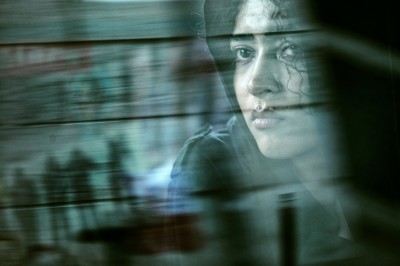The year behind us was very productive in the world of film and the 45th FEST can boast the exciting main competition programme featuring international films that include15 films coming from 12 countries. As during each Festival edition, films with different themes, styles and of various genres meet within this programme, which are all characterized by the thoughtful and bold author’s attitude. The films in the framework of this programme will be competing for the Belgrade Victor. The president of the Jury that awards the prize will be the Serbian director Srdan Golubović.
A part of the main competition programme are two films that deal with one of the most pressing issues of our time - terrorism, Hussein Hassan Ali’s The Dark Wind (Iraq, Syria) and Layla M. by the Dutch director Mijke de Jong. The first film deals with the terrifying problem of the modern age through the prism of a love story in occupied Sinjar, while the other one offers a modern woman’s point of view on the islamophobia that is widespread across Europe, from a perspective of a young and radical Muslim woman. Iranian cinema has been one of the leading cinemas for the last two decades. Two films coming from Iran are Behnam Behzadi’s The Inversion, which examines the liberal beliefs of a young woman from Tehran, and Parviz Shahbazi’s Malaria, a story of a rather free-spirited girl who fakes her kidnapping in front of her brother and father.
The main competition programme also includes two Russian films: Kirill Serebrennikov’s The Student, a story of a boy’s ethical turmoil, and Pavel Lungin’s Queen of Spades, a story of the unusual fate of a woman at a card table. Especially eccentric is the Greek festival and box office hit Suntan by Argyris Papadimitropoulos, an extremely witty film that deals with the distorted view of closeness. Haim Tabakman’s Eva (Israel) is an intimate story of a marriage that gets shaken when the husband discovers that on the other side of town, in an apartment registered in his name, lives an unknown man. Films in competition are also Gudmundur Arnar Gudmundsson’s Hearthstone (Denmark, Iceland), a coming-of-age story of two young boys in a small fishing village in Iceland, Giuseppe Piccioni's These Days (Italy), a story of four friends on the road who review their mutual relationships and plans for the future as well as Laurent Teyssier’s Toril (France), an intriguing thriller about a young man who decides to start growing marijuana so that he could be able to pay the bills. Slovak-Czech film Učitelka by Jan Hrebejk is a drama set in Bratislava during the last years of communist rule and explores power relations in a secondary school.
There are three films coming from our region, one being from Slovenia, Nightlife by the well-known Slovenian director Damjan Kozole. It is a psychological drama about a middle-aged woman who is trying to cope with the sudden death of her husband. One of the two films from Croatia is the Nevio Marasović’s third feature Goran, a picturesque thriller, unusually stylized and sharp. The overall aesthetic of the film is very reminiscent of the Scandinavian films. Interestingly enough, the screenwriter is Gjermund Gisvold, the Norwegian author. Also representing Croatia in the main competition programme of the 45th FEST is the debut of the young Croatian director Hana Jušić, which was one of the most refreshing films coming from the last year’s regional film industry. Quit Staring at My Plate tells a bold story about being confined in every respect, both literally and figuratively, through the eyes of a young woman, a protagonist in the film.




